Letters & Science Advisory Council
Established in 2005, the Letters & Science Advisory Council is the college's outside advisory group that serves as a "cabinet" for the dean and associate deans. Leaders from the business, civic and academic communities comprise the council and bring special qualities, expertise and interests applicable to the college's initiatives in undergraduate education, strategic planning, financial management and development priorities.
Current Advisory Council members include:
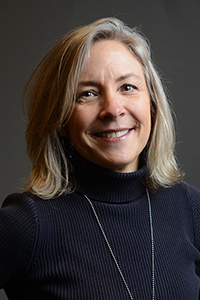
Paula Beswick
Paula K. Beswick spent nearly a decade as the Foundation Director for the Bozeman Public Library Foundation and currently is a Non-profit Consultant, working with libraries and small NGOs. Paula has had leadership roles on several non-profit community boards, including Friends of the Bozeman Public Library, Bozeman Business & Professional Women, Bozeman Sculpture Park, Gallatin Art Crossing, Bozeman Cultural Council, Bozeman Climate Partners, and the national organization, United for Libraries. In addition, she is a founding board member of Mountain Journal, an online environmental magazine, and a member of the Library Community Forum. Paula grew up in South Miami and earned a B.A. in political science from Florida International University.
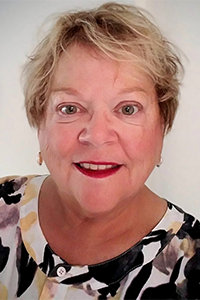
Julianne Bye
Julianne Bye received her BA in Political Science from Montana State University in 1974. She earned her MBA from the University of St. Thomas in 1985 and Mini MBA in Nonprofit Management in 2006. Her professional career spanned forty-three years and included service in local government management and planning, financial services and fundraising for the YWCA of Minneapolis. In addition, she has worked diligently to support women's advancement with an emphasis on Title IX. Upon retirement, Julianne moved to Rio Verde, AZ, and has continued her commitment to community service as a member of the College of Letter and Science Dean's Advisory Committee, Ann Bancroft Foundation Board of Directors, and most recently, the Rio Verde Country Club Board of Directors.
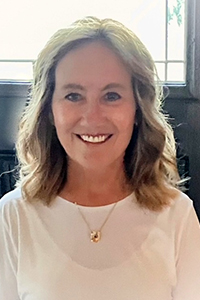
Suzie Flentie
Suzie Flentie attended MSU from 1976-1980, receiving a bachelor's degree in education and completing a master's degree in 1990. While attending MSU, she competed on the women's cross country and track teams and was active in the Spurs National Women's Collegiate Honor Society, founded at MSU in 1922. Suzie taught in Lewistown, Montana, for 41 years, retiring in 2021. She also coached cross country and track at Fergus High School in Lewistown, retiring in 2021 and returning as the head cross country coach in 2022. She was the advisor for Lewistown Junior High STEM groups that won the state Samsung Solve for Tomorrow competition six times from 2014-2021. Suzie participated in MSU's Research Experience for Teachers (RET) program from 2006-2009, working with nanotechnology and fuel cell research in the Magnetic Nanostructures Lab. She also participated in teacher outreach support for EPSCoR (Experimental Program to Stimulate Competitive Research) and CBIN (Center for Bio-Inspired Nanomaterials) programs at MSU (2008-2011) by developing self-contained teaching modules for the Extended University's National Teachers Education Network (NTEN). In 2012 and 2014, Suzie assisted with the MSU Nano Days outreach event. She also presented and assisted with MSU's distance running camp several times when her athletes were in attendance.
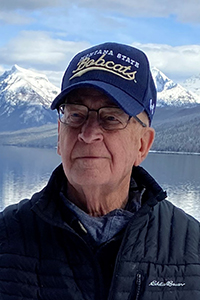
Marshall Gingery
Marshall Gingery received two B.S. degrees, one in earth science and the other in geography, from MSU in 1962 and 1963. He enjoyed a successful 31-year career with the Department of the Interior, holding various management positions with the Department of the Interior and the National Park Service across the country. He served in several senior management positions in Washington, D.C., as a Regional Director with the Department of the Interior, and his final tenure of ten years was as the Assistant Superintendent, Science, Resource Management, and Planning of Grand Teton National Park in Wyoming, from which he retired in 1994. In addition, Marshall has served as an active volunteer in the many communities where his career has taken him. In addition to his church, Rotary and Boy Scout work, he has served as School Board Chairman in Wyoming, City-County Planning Commission Chairman in Wyoming and Montana, Chairman of the Governor’s Land Quality Board in Wyoming, Chairman of the Rotary Waterton-Glacier International Peace Park Association and serves on the Foundation Board for Grant-Kohrs National Historic Site.
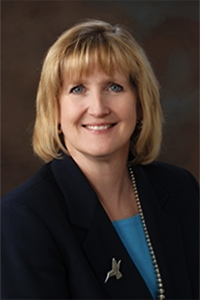
Charlene Porslid
Charlene Porsild is the President and CEO of The Foundation for Montana History. A former Fulbright Scholar, history professor and university administrator, she holds a B.A. from the University of Alberta, an M.A. from the University of Ottawa, and a Ph.D. from Canada’s Carleton University. She is the author of several books, including Montana Place Names From Alzada to Zoortman and the award-winning Gamblers and Dreamers: Women, Men and Community in the Klondike. A native of Canada’s Yukon, she has lived and worked in the Mountain West most of her life. She is an avid kayaker, hiker and historic cemetery enthusiast. She is also a proud Bobcat mama: son Noah Whitehorn is a senior majoring in anthropology and Asian studies. Outside of the office, Charlene enjoys exploring Montana rivers and trails with her husband, Clark Whitehorn, and their Aussie pup Rascal.
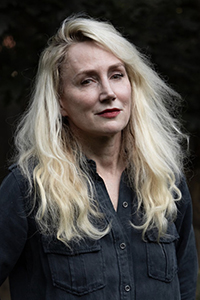
Betsy Gaines Quammen
Betsy Gaines Quammen is a historian and writer. Her work has been in the New York Times, New York Daily News, and History News Network. She founded and helmed the Tributary Fund, developing projects in Mongolia with Buddhist monks on healthy fisheries and working with religious leaders on pollinator gardens and energy efficiency in the U.S. Betsy earned her Ph.D. in history at Montana State University. She is the author of American Zion: Cliven Bundy, God, and Public Lands in the West.

Bradley Snow
Bradley Snow is the great-grandson of the late Burton K. Wheeler, who served as U.S. Senator from Montana from 1923 to 1947. In 2012, Bradley was one of the first students to earn a Ph.D. in a humanities discipline from MSU. Along with Diane Smith, he received a Ph.D. in American History from the Department of History and Philosophy. He serves as the vice chair of the School District Board in Livingston, Montana. He is also chair of the Board of Directors for the Burton K. Wheeler Center for Public Policy in Bozeman.
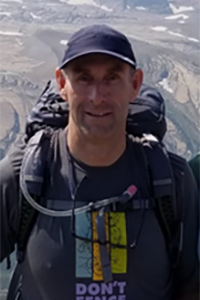
John Tietz
John Tietz grew up in Bozeman and received a B.S. degree from the MSU College of Agriculture in 1987 and a J.D. from the Seattle University School of Law in 2004. After graduating from MSU, John worked in the environmental consulting and services industry throughout the Pacific Northwest until he entered law school in 2001. After obtaining his law degree in 2004, he and his family returned to Montana, where he joined the Browning, Kaleczyc, Berry & Hoven, P.C. law firm in Helena. John’s legal practice focuses on water law, real property, and environmental issues. Outside of his legal practice, John is active in community land conservation, and he currently serves as the chair of the Board of Directors for the Prickly Pear Land Trust.
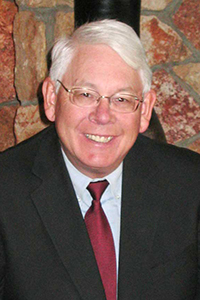
William Yellowtail Jr.
Bill Yellowtail grew up on his family’s cattle ranch on the Crow Indian Reservation in Montana. Holding a degree in geography from Dartmouth College, he served as Regional Administrator for the U.S. Environmental Protection Agency during the Clinton administration, responsible for six Western states and 27 Indian tribes. He was appointed Katz Professor of Native American Studies at MSU in 2006, and subsequently served MSU as Director of Tribal Partnerships. He has served on the Boards of Directors of Humanities Montana, the Burton K. Wheeler Center and the National Audubon Society.
